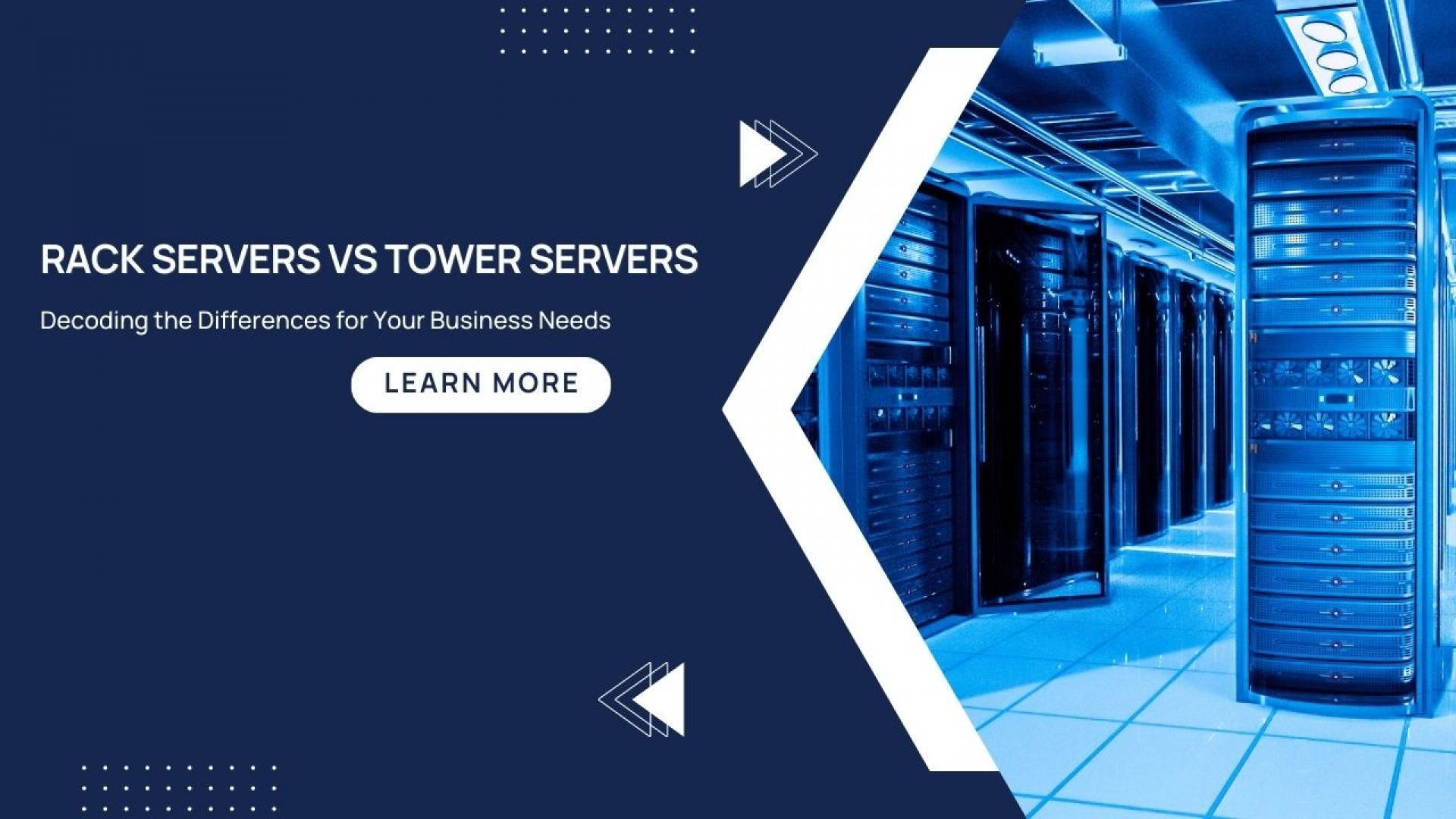
Introduction:
Welcome to the Server Store blog! As your go-to source for server-related information and products, we are always eager to provide you with valuable insights into the world of servers. Today, we'll be exploring the key differences between two popular server types: rack servers and tower servers. If you're considering an upgrade or starting a new project, understanding the distinctions between these two options is crucial for making an informed decision. In this comprehensive guide, we'll be delving into the features, benefits, and best use cases for each server type, so let's dive in!
Rack Servers – A Space-saving Solution for Growing Businesses
What are Rack Servers?
Rack servers are designed to be mounted onto a standardized framework called a server rack. These racks provide an organized and efficient way of housing multiple servers in a compact space, with each server occupying a specific "rack unit" (U). A typical rack server's height is measured in U, with 1U equalling 1.75 inches. Common rack server sizes include 1U, 2U, and 4U, although other sizes are available for specialized applications.
Benefits of Rack Servers
Space Efficiency
One of the most significant advantages of rack servers is their space-saving design. By stacking servers vertically in a rack, businesses can maximize their data center or server room's floor space. This efficient use of space is particularly beneficial for growing businesses that may have limited real estate.
Scalability
Rack servers are highly scalable, allowing for easy expansion as your business grows. Adding more servers to your setup is as simple as sliding them into an open rack unit, eliminating the need for a complete infrastructure overhaul.
Centralized Management
With rack servers, all your hardware is consolidated in one location, making management and maintenance tasks more straightforward. Many rack servers also feature remote management capabilities, allowing administrators to monitor and control servers from a distance.
Improved Airflow and Cooling
Rack servers are designed with efficient airflow and cooling in mind. Since heat rises, the vertical orientation of rack servers helps dissipate heat more effectively than horizontal configurations. Additionally, server racks often include built-in cooling systems to maintain optimal temperatures.
Ideal Use Cases for Rack Servers
Rack servers are best suited for businesses with a dedicated server room or data center and a need for scalable, space-saving solutions. They're ideal for organizations that anticipate significant growth and require a flexible infrastructure to accommodate future expansion.
Tower Servers – The Flexible Choice for Small Businesses and Remote Offices
What are Tower Servers?
Tower servers are freestanding units designed to resemble traditional desktop computer towers. They don't require any specialized mounting equipment and can be placed on a floor, desk, or shelf. Tower servers are available in various sizes and configurations, and are often chosen by small businesses and remote offices for their flexibility and ease of deployment.
Benefits of Tower Servers
No Specialized Infrastructure Required
Unlike rack servers, tower servers don't require server racks or cabinets. This makes them an attractive option for businesses without dedicated server rooms or data centers, as they can be placed in any available space.
Quiet Operation
Tower servers typically generate less noise than their rack-mounted counterparts, making them well-suited for office environments or other areas where noise could be disruptive.
Ease of Maintenance
With their standalone design, tower servers are easily accessible, simplifying hardware maintenance and upgrades quick and straightforward troubleshooting and component replacements.
Cost-Effective
Tower servers are generally more affordable than rack servers, making them an attractive option for small businesses and startups with limited budgets. Additionally, the lack of specialized mounting equipment and infrastructure further reduces overall costs.
Ideal Use Cases for Tower Servers
Tower servers are best suited for small businesses, remote offices, or organizations that do not require extensive server infrastructure. Their flexibility and cost-effectiveness make them an excellent choice for companies with limited IT resources or space constraints.
Comparing Rack and Tower Servers – Key Factors to Consider
Space Requirements
When choosing between rack and tower servers, consider your available space. If you have limited real estate or plan to expand your server infrastructure in the future, rack servers' space-saving design may be more suitable. On the other hand, if you have ample space and do not require multiple servers, a tower server may be sufficient.
Scalability
Rack servers offer superior scalability, making them the ideal choice for growing businesses that anticipate needing to add more servers over time. However, if you don't foresee a need for expansion, a tower server may be more than adequate for your needs.
Noise Levels
If noise is a concern, tower servers are generally quieter than rack servers, making them a better option for office environments or spaces where excessive noise could be disruptive.
Budget
If you're working with a limited budget, tower servers are generally more cost-effective than rack servers. However, it's important to consider the long-term costs, such as the potential need for additional infrastructure or the cost of upgrading to a rack system if your business outgrows a tower server.
Maintenance and Accessibility
Consider how easily you can access and maintain your servers. While rack servers offer centralized management, tower servers are often more straightforward for maintenance tasks and hardware upgrades.
Conclusion:
Ultimately, the decision between rack servers and tower servers comes down to your specific business needs, available space, budget, and plans for future growth. By carefully considering the advantages and ideal use cases of each server type, you can make an informed decision that best supports your organization's objectives.
At Server Store, we offer a wide range of both Rack Servers and Tower Servers to meet your unique needs. Our knowledgeable team is always available to assist you in selecting the right server solution for your business. Don't hesitate to reach out to us for personalized recommendations and expert advice. Happy server shopping!

Leave a Comment